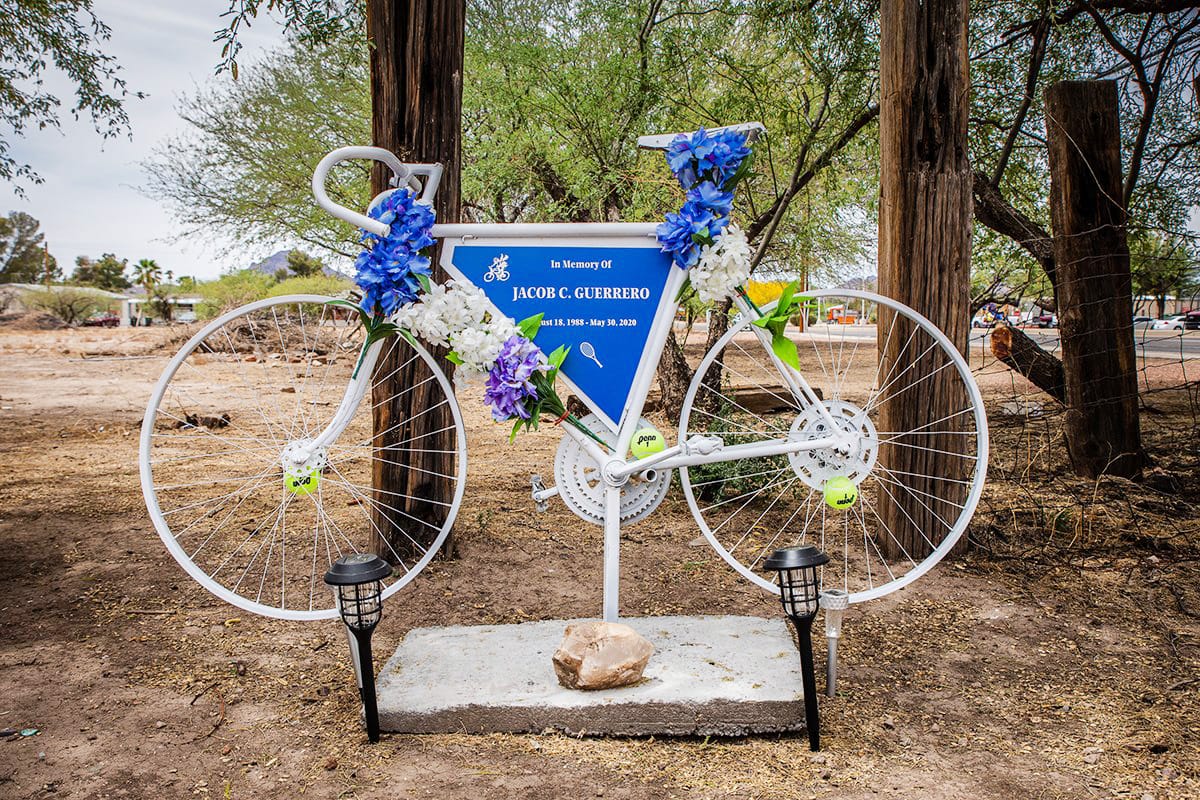A ghost bike sits at the site of Jacob Guerrero’s overdose death in Tucson. Theresa Guerrero, his mother, placed the commemorative bicycle adorned with tennis balls, symbolizing two of his favorite pastimes, to remember her son’s spirit. (Photo by Alberto Mariani/Cronkite News
By Jamie Landers/Cronkite News
TUCSON – It was a Tuesday afternoon, two months into the pandemic, when Theresa Guerrero got the call from her brother-in-law: Her son, Jacob, had been found unresponsive.
She was standing in the middle of a Ross store in south Tucson picking out a pillow he’d asked for, throwing it to the floor as she raced toward the exit.
Jacob was a cyclist, a tennis player – a trusting, good man – but he’d grown lethargic of late and quit pursuing his active lifestyle. The pandemic only made things worse.
He’d been working as a Postmates driver for a couple of months. One day, his mother saw straws in his car and wondered whether he was using cocaine. But when she confronted Jacob, he brushed her off.
“He was, like so many other people, really lonely, and I remember he would go on drives by himself just to get out of the house,” Guerrero said. “I have to wonder if he had been able to see other people, would they have noticed what he was going through before I did?”








